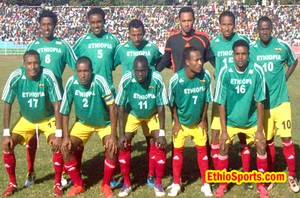Ethiopia’s presence in African football carries profound symbolism. As a founding member of the Confederation of African Football (CAF), Ethiopia holds a unique position, being the inaugural team to reach the final alongside Egypt in the CAN (African Cup of Nations) on February 10, 1957, in Khartoum. Unfortunately, Ethiopia faced defeat in the final, succumbing 4-0 to the Pharaohs.
Despite not being the most renowned team on the continent in football, Ethiopia has participated in eight other final stages, with a notable victory in 1962 against Egypt, clinched through a penalty shootout with a score of 4-2. Their most recent participation dates back to 1982 in Libya. Notably, Ethiopia’s global recognition is often attributed to long-distance running athletes like Hailé Gébreselassie, Kenenissa Bekele, and Tiruneh Dibaba.
Currently ranked 118th in the FIFA rankings as of October, the team, known as the Walya Antelopes, may see an upward shift in their ranking in the upcoming assessment. Their qualification for the 29th edition of the CAN was a surprising turnaround, overcoming a 5-3 deficit in the first leg to secure a 2-0 victory in Khartoum against Sudan, with goals from Adane Girma and Saladin Said in the second half.
Sewnet Bishaw, the team’s coach, relies on a squad predominantly composed of players from the domestic league or those playing in Sudan, with Saladin Said being a notable exception, playing in Egypt. As the draw approaches on October 24, Ethiopia hopes to avoid formidable opponents, recognizing that, unlike other qualified countries, they are not emerging from a 31-year absence from the tournament.











